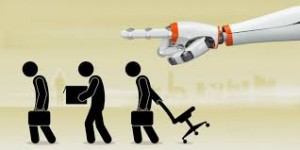Coaching and the future of work over the next 20 years
Posted on 19th August 2015
I have trained to be a coach, in the main, to support those who want to start and run their own businesses. So what is the outlook for me and any (potential) clients over the next 20 years?
Out of general curiosity and pragmatism, I regularly check the various business and economic gurus’ assessments of the future. Some commentators’ previous crystal-ball gazing has proved to be a mile off.
Not so Will Hutton, author and regular columnist in the Observer newspaper.
In 1992, when the Conservatives secured an unexpected victory under the stewardship of John Major, Hutton predicted the collapse of Britain’s participation in the Exchange Rate Mechanism (ERM) as the starting gun to internecine fractures over Europe, with Major soon becoming a dead man walking.
With many of Hutton’s other predictions about work and the economy coming true, I was motivated to read his assessment of the future UK and International job market in his new book ‘How Good We Can Be’.
The following comment, based on research undertaken by the Oxford Martin School, was both intriguing, if a little alarming (p29):
“The advent of thinking machines threatens routine work across the board. From staff-free ticket offices to students who can learn online without going to college, it seems there is no corner of economic life where people are not being replaced by machines – a trend that will accelerate. One important study evaluating the impact of computers and robots on 702 American occupations, suggests that over the ‘next decade or two’ as much as 47% of all US employment could be at risk of being automated and performed by machines, not only in transport and logistics but across a range of service sectors.”
I had to read that again; 47% of all jobs going.
And that needs to happen faster in the UK, as well as the US, because, comparatively, wages are higher in the West than elsewhere. You can see it already. When I visit WH Smith at Luton airport, there’s just one member of staff trying to explain to an angry queue of customers how to scan their goods and then scan their boarding passes on a different part of the machine. When I reach Belgrade there appears to be three members of staff to every customer in airport retail outlets.
So most of what are considered to be low skill routine ‘lousy jobs, will eventually disappear…but sooner than most of us might think.
I’ve read other reports of algorithms soon being able to replace some high paid ‘thinking’ professions. Interventions delivered by lawyers and accountants may well come from computers that can analyse trends and assess probabilities.
Will Hutton also has a view of where rapid change is taking place and large numbers of jobs are likely to be created.
He suggests the development of new forms of nutrition, economical resource use, and digital/‘big data’ management.
Also, just around the corner, is the rapid growth of micro-production. Technology will allow products and services to be personalised, and done so at process as if they were mass-produced; think micro-brewers, micro-bakeries, micro-software, etc.
Finally there’s the expected expansion in ‘human well-being’ services.
Hutton says (p31):
“There will be a boom in advising, coaching, mentoring, doctoring, nursing, teaching and general enhancement of human beings’ capabilities.”
So it could be good for us coaches, particularly the ones focusing on the SME sector.
Maybe 10 years from now, an algorithm will have been able to construct this article knowing exactly what I would write.
I just don’t know yet if that would be ‘for’ me, or ‘instead’ of me….







Leave a reply